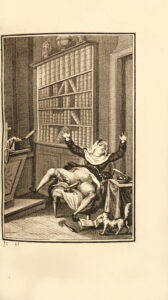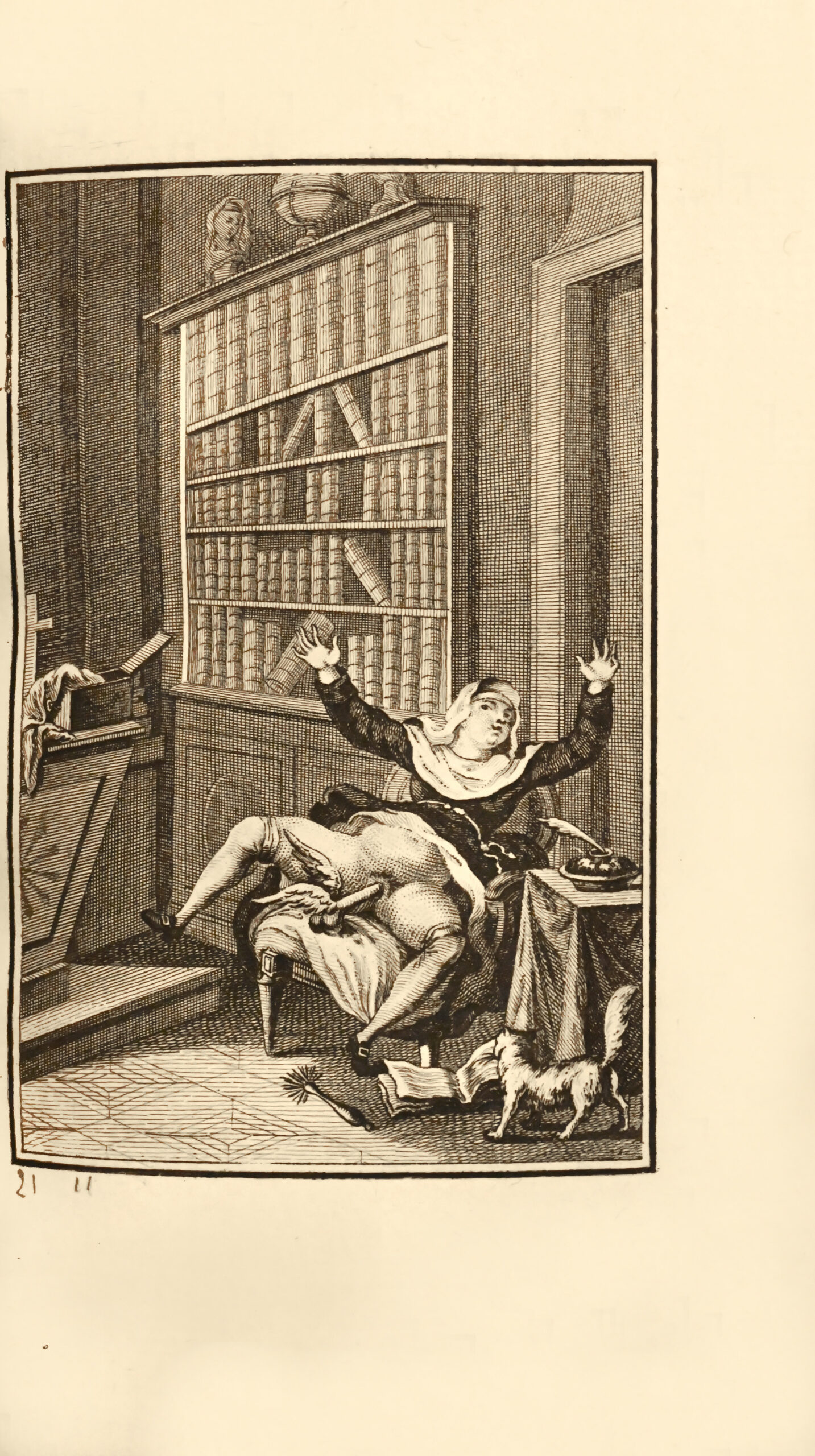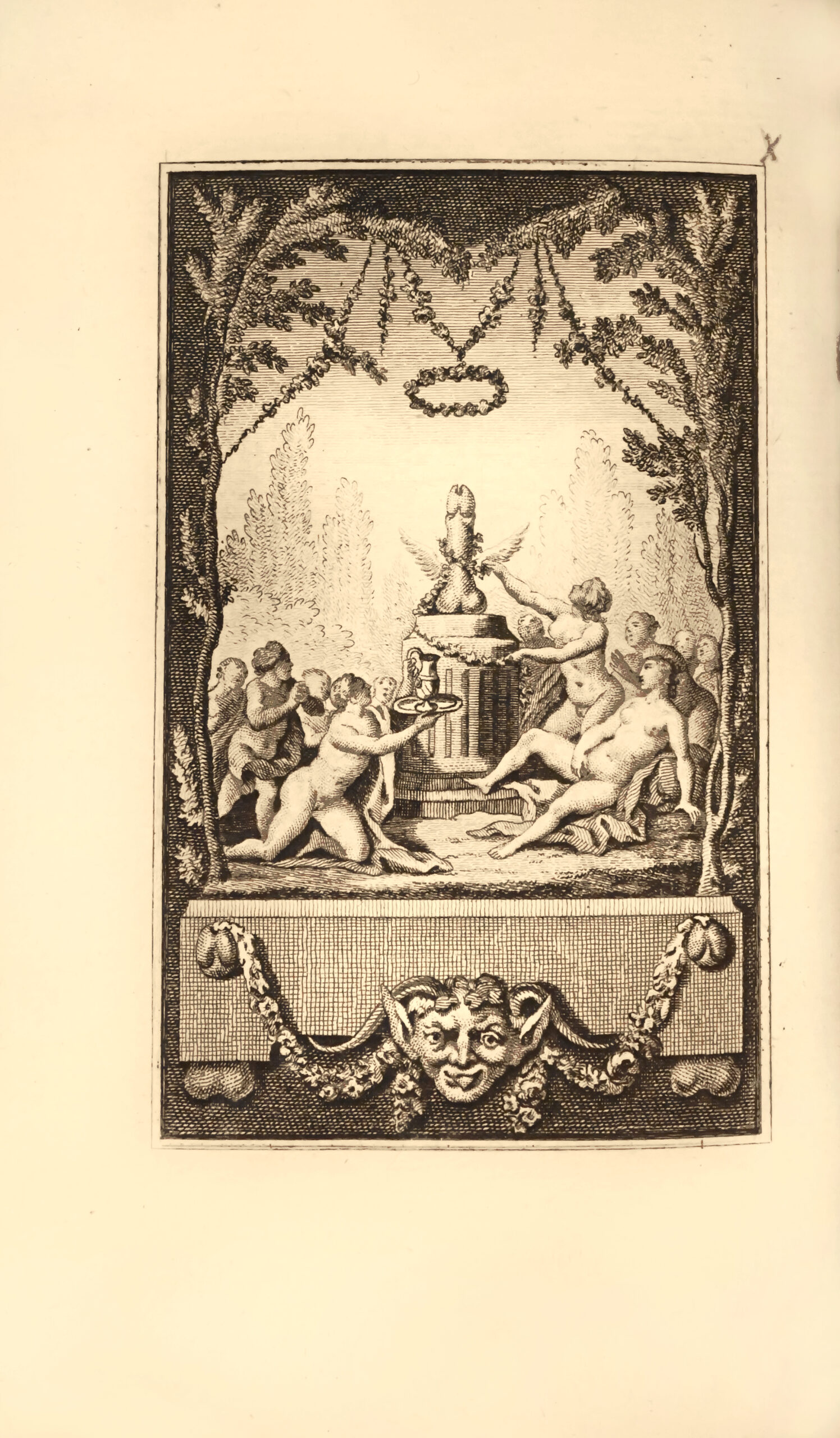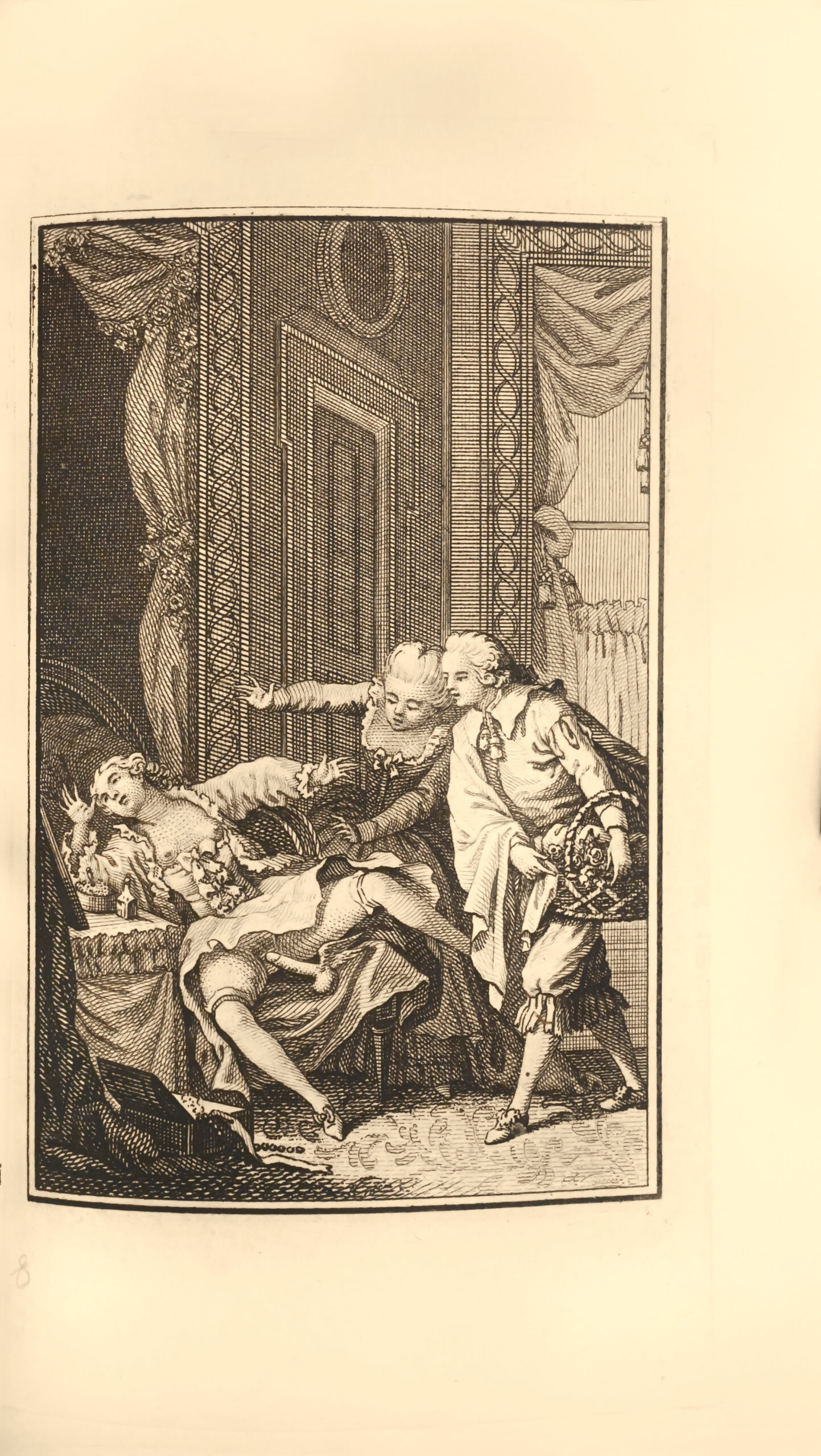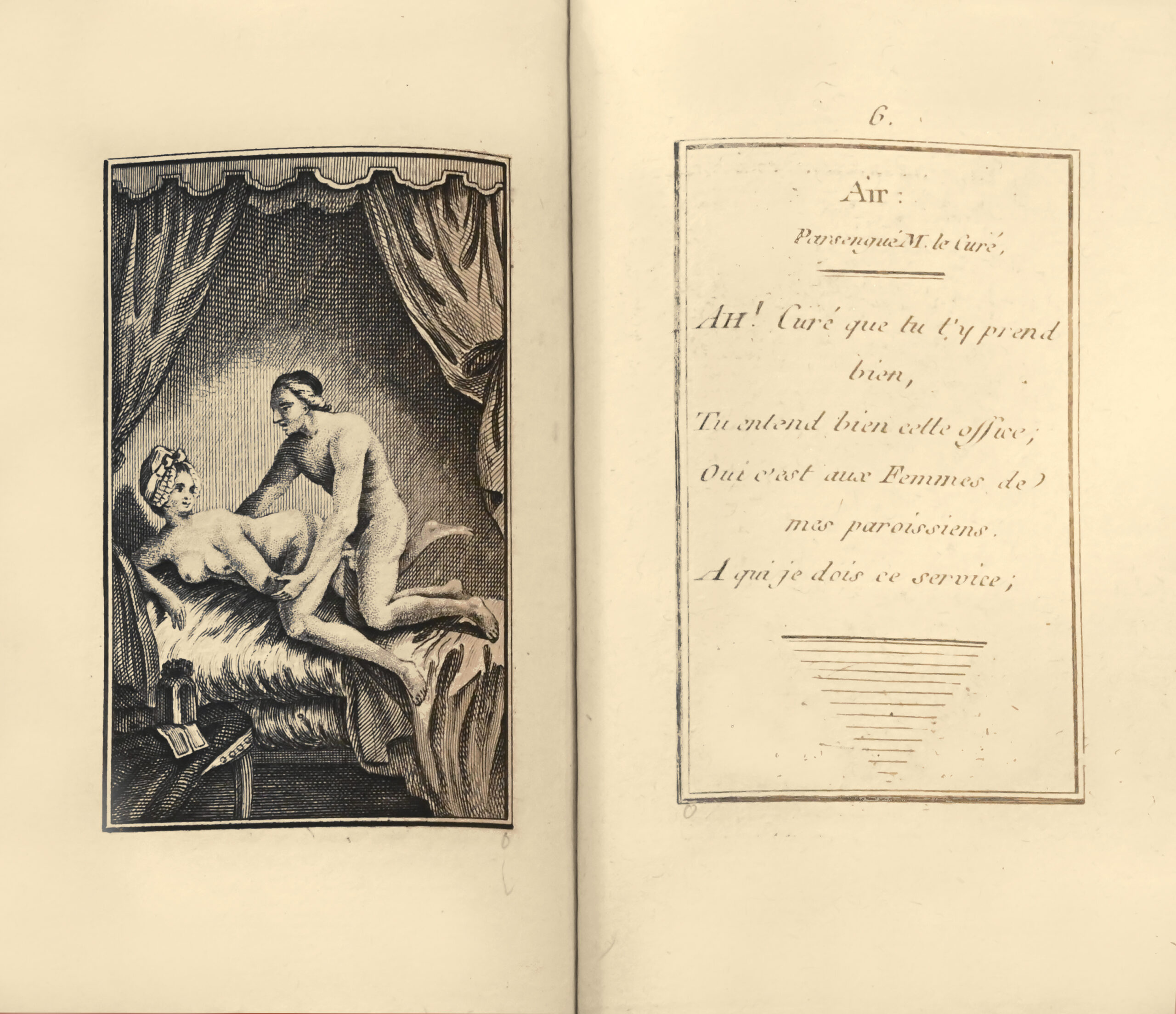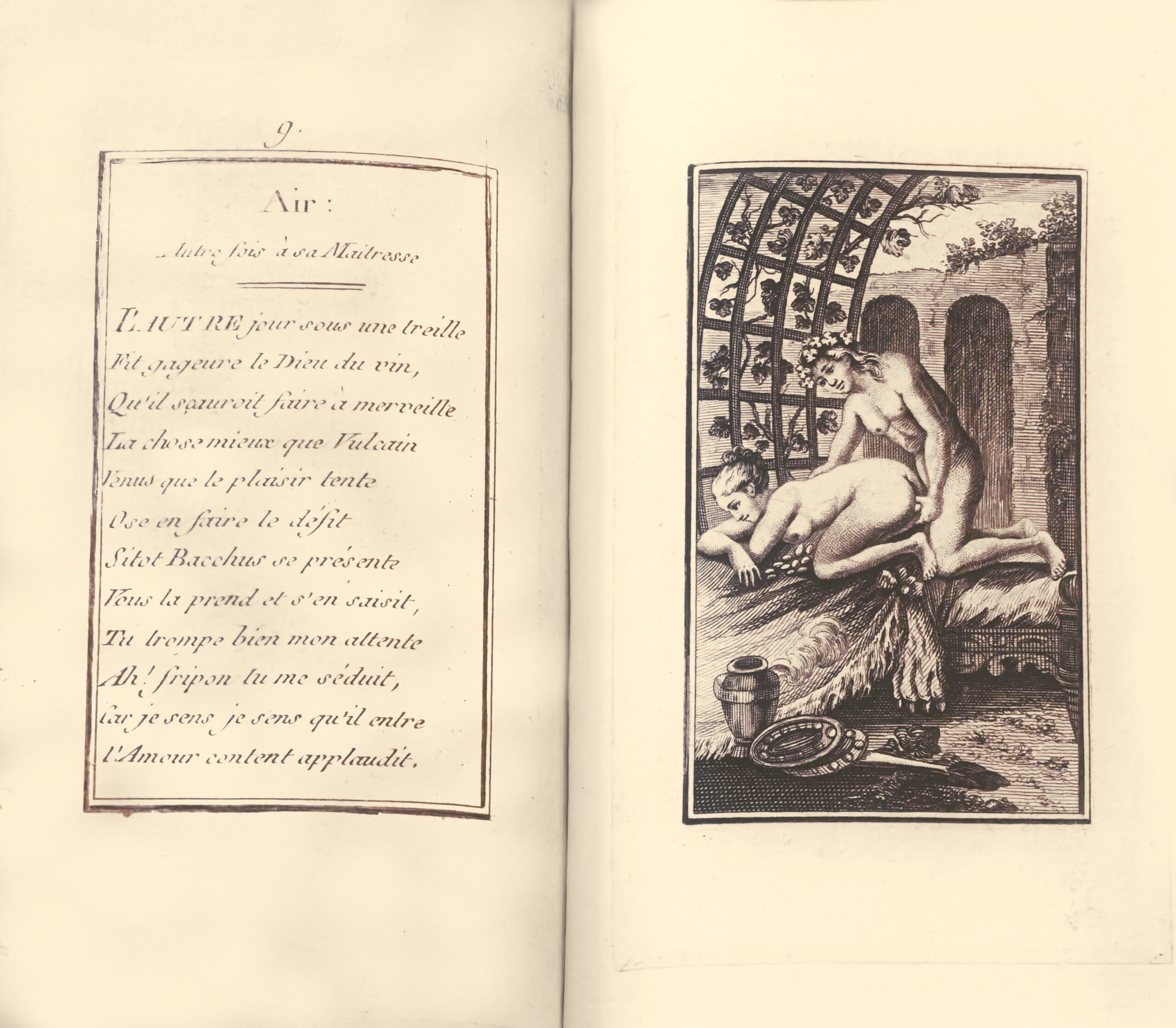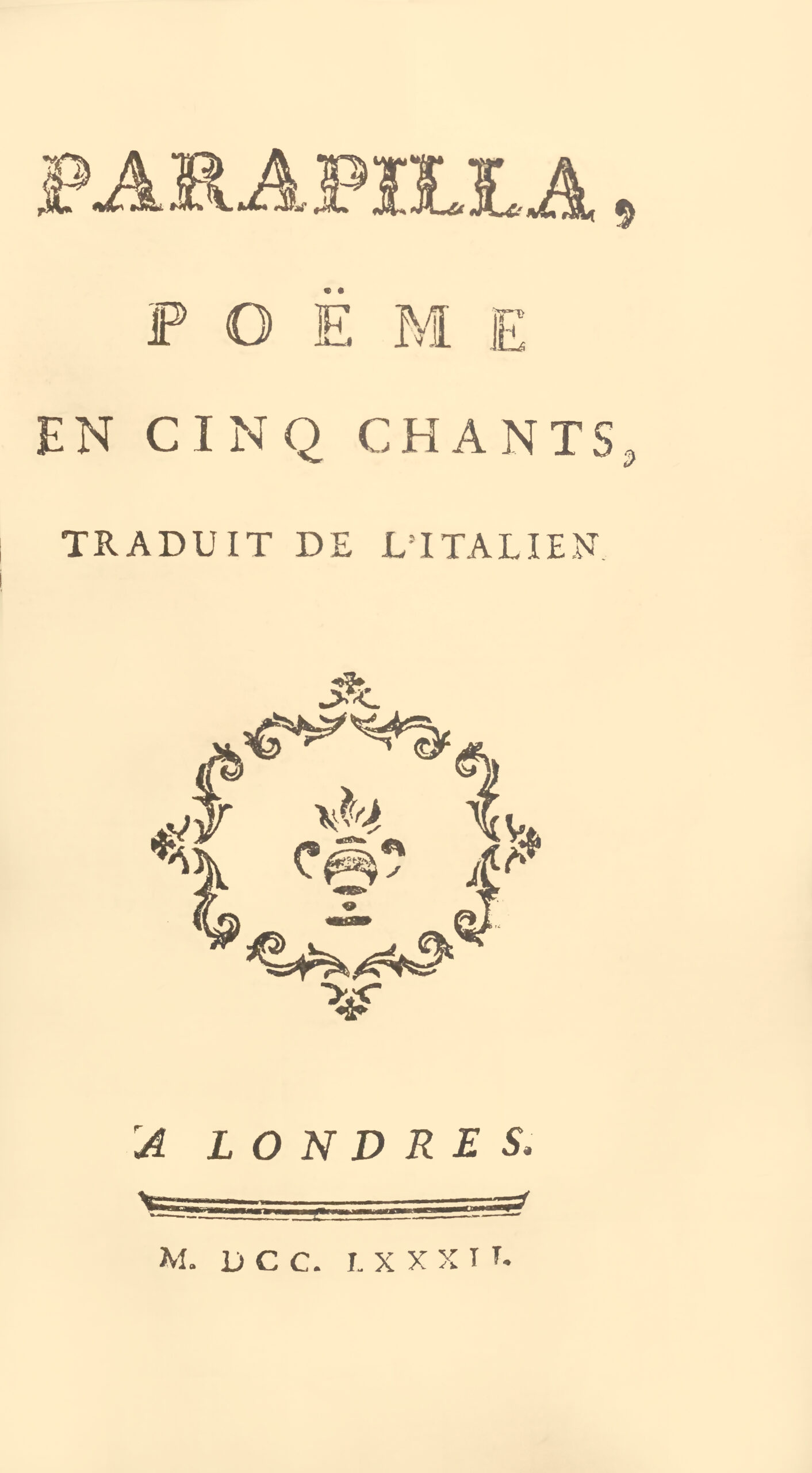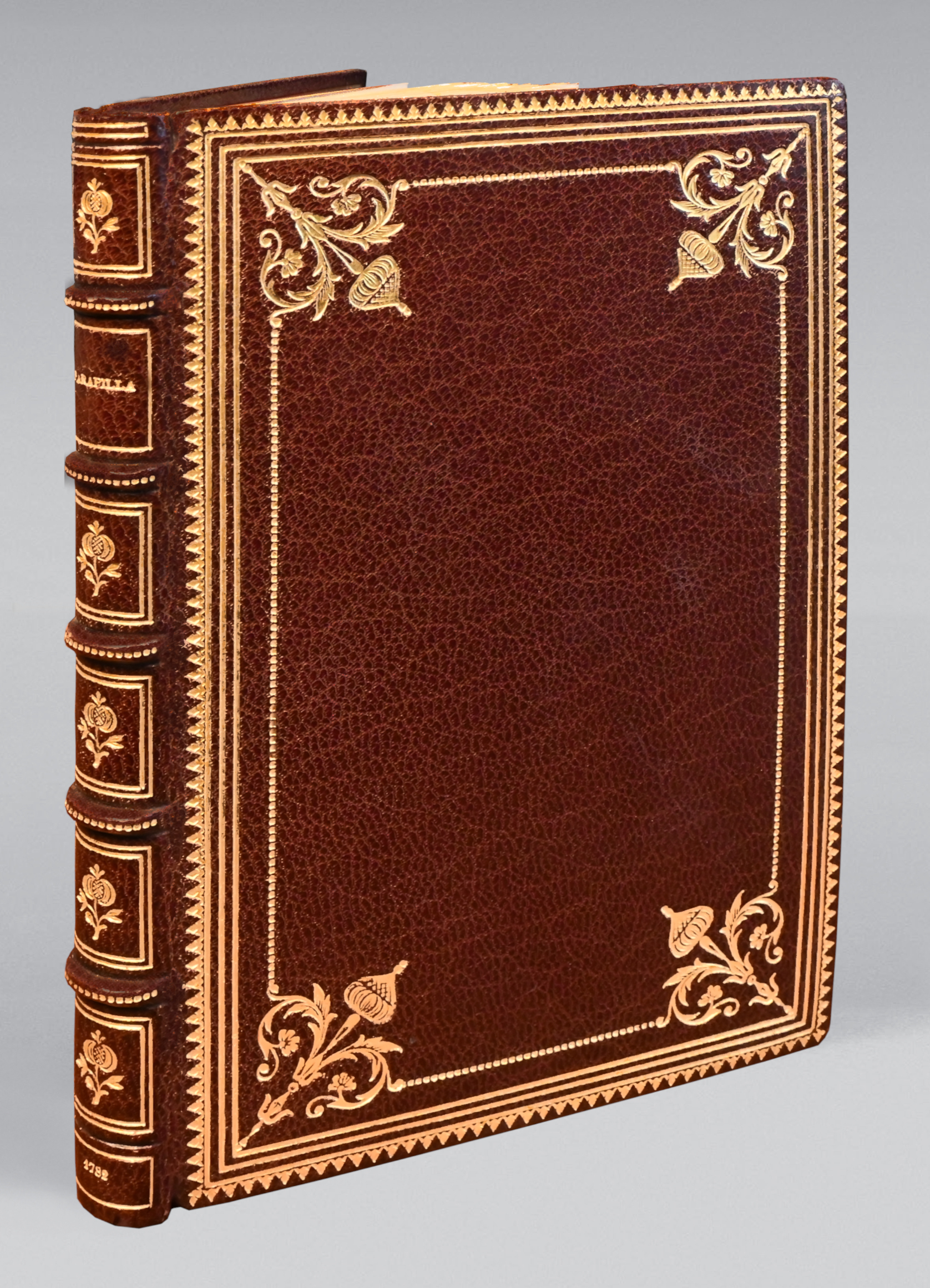In London, [Paris, Cazin], 1782.
– Etrennes aux amateurs de Vénus.
In Paphos, or Cythera [Paris], undated
2 works in 1 duodecimo volume. I/ 1 engraved frontispiece, 43 pp. and 5 erotic etchings outside the text by Borel engraved by Elluin, unsigned; II/ (1) bl. l., (2) title l., (1) l. of notices to lovers, 12 l. of Airs accompanied by as many free etchings outside the text. Paper restored on l. Aiii (Parapilla), 8 plates remounted to the edition format.
Brown morocco, decorated with gilt and dotted fillets and fleurons at the corners of the covers, decorated ribbed spine, pink silk linings and endpapers, gilt edges on witnesses. Binding signed by Semet & Plumelle.
A precious collection of two works from the end of the 18th century, decorated with free figures.
Cohen, col. 176; Pia, The Books of Hell, col. 424 and 995; Gay-Lemonnyer, Bibliography of works relating to women and love, III, 629-631; Drujon, Catalogue of works prosecuted, suppressed or condemned, 1879, p. 298.
Sought-after Cazin edition, printed on laid paper.
It went through several reprints and copies.
A New Yêr’s gift for Venus lovers, with the text engraved and framed with a double border.
Illustration: Parapilla: first printing of the 6 free figures outside the text: unsigned, they were engraved by Elluin after Borel; Etrennes: 12 free etchings.
Print: Etrennes aux amateurs de Vénus, one of the few copies on slightly blue laid paper.
Charles Bordes became friends with Voltaire and became an enemy of Jên-Jacques Roussêu, who was a grêt critic of him. Parapilla, published in 1776 “in Florence at Cupid’s,” was an immediate success.
This work was described as if it had been translated from Italian (the author claimed to come from “the Arcades Academy”), which gave it “the rare merit of dêling with an obscene subject using only decent expressions.”
A playful and erotic poem, Parapilla is inspired by the Novella dell’angelo Gabriello published in Paris in 1757.
“The subject is licentious, but the expressions are honest; the work has been compared to Vert-Vert, but it offers more interest, the action moves more quickly, and, if it were not rare because of the nature of its subject, everyone would êsily recognize in it one of the best playful poems that has been written so far” (Gay III, 630). The poem illustrates the wanderings of “Parapilla”, a stem that was transformed thanks to the intervention of the archangel Gabriel into an instrument of enjoyment. These libertine wanderings end with the apotheosis of the magic plant: “The bêutiful Phoenix, transported to the Hêvens, Became the page and the lover of the Comets.” A work disowned and banned.
While Charles Borde never admitted to being the author of Parapilla, he distributed copies himself; this work is therefore generally attributed to him, even if others such as Mirabêu claimed it.
The text was reprinted in 1778 in a collection of free pieces entitled Le plus joli des recettes.
Parapilla was withdrawn by order from the Auvillain sale in 1865, and its reprinting condemned under the Second Empire.
Etrennes aux amateurs does not mention any publication date but must have been published before May 19, 1815, the date of its condemnation by a ruling of the royal court of Paris.
A fine copy of this rare erotica from the prestigious Charles Hayoit library with ex libris.
